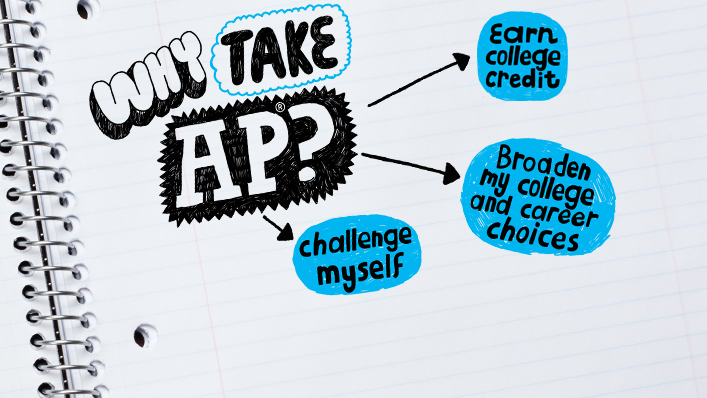Deciding on what classes to take in high school can be a daunting and intimidating process. It seems like any wrong choice can come back and haunt you when it comes time for college applications.
Truth is, there's no secret formula into getting into college. Not even a perfect score on the SAT or a GPA or a 4.0 GPA can guarantee admittance to the nation’s top schools.
So, if even being in the top 1% of test takers can't guarantee you admittance to Harvard and Stanford, then what are college admission officers looking for?
Here's some advice on how to take classes that interest and challenge you, while still being a competitive applicant in the eyes of an admission officer.

What Does The Holistic Approach Mean Anyways?
Your high school transcript is one of the most important parts of your application, but let's not forget, it's not the only thing admission officers take into consideration when deciding whether you’re a right fit for their college. They look at everything from test scores, extracurriculars, grades, teacher recommendations, GPA, class percentile, essays, extenuating circumstances and many other factors when deciding to admit or reject students.
According to College Board, you should aim to take:
- 4 years of English
- 4 years of Math
- 3 years of a lab Science (4 for the most competitive colleges)
- 2+ years of Social science/ History (4 for the most competitive colleges)
- 2+ years of a Foreign language (4 for the most competitive colleges)
Keep in mind that these requirements are the bare minimum for high school, but depending on the specific colleges you intend to apply to, they may change. Regardless, even if you're not sure where you want to go to college, you should strive to take the most classes in each core subject if you can.
If you're not sure if you're on track toward your goals, it's a great idea to visit your guidance counselor to help map out your high school plan. This can help you meet your high school and college requirements and also see if you need to take any prerequisites for certain classes.
So What Classes Do Colleges Like?
Colleges want to see you taking the most rigorous course load within the context of your high school. So whether if you go to an inner city high school that only provides 3 AP courses with no IB (International Baccalaureate) program or a top-notch private school with 15+ AP classes and strong IB program, colleges will focus on what resources were available to you and if you took advantage of them or not.
For example, Yale's admission Q&A page stresses how much they take context into account, when they view your high school transcript:
“We know you did not design your school’s curriculum... Different schools have different requirements that may restrict what courses you can take. Again, we only expect that you will excel in the opportunities to which you have access.”
You should be spending your time in high school challenging yourself more and more each year with an increasingly load of honors and AP classes. Each year you should try to push yourself a little farther in the context of your abilities, keeping in mind your extracurriculars and time availability.
Better Grades VS Harder Classes
When it comes down to taking better grades or harder classes, harder classes should always win. Colleges can tell when you're not pushing yourself if on your transcript all they see are standard classes. The best advice I can give you (from personal experience) is that it looks way better to push yourself and take an honors class and get a B or an AP and receive a C, than a standard class and receive an A. Why? It shows that you're taking initiative and not afraid of a challenge, it also shows that you love to learn for the sake of learning and that's something you want colleges to notice about you.
When it comes to the number of AP classes you should take, think QUALITY over QUANTITY. There is no magic number of AP’s you should take during your high school career. YOU have to decide what YOU can handle. Remember, every high school is different, as is every applicant, so they will access your rigor based on the context of your high school, community and circumstances.
What If Your School Lacks Rigorous Classes?
If your school lacks rigorous courses, try to look into a dual enrollment program at your nearest community college. Classes and books usually are free, but check with your guidance counselor to make sure. Another option is to take online classes during the school year or summer classes during vacation.
If you’re given the opportunity to explain your circumstances on the application, TAKE IT. Communicate to your colleges that you came from a low-performing high school and explain the lack of course selections and programs available, to explain any holes in your application. Believe it or not, college admission officers play close attention to details like these it’s part of the holistic process.
Choosing Electives
You should take classes that interest you and not what you think colleges want to see you take. If you enjoy math or a foreign language, take the most classes you can in that subject. The reason for this is that admission officers want to see you begin to develop interests and passions, during high school because it gives them an idea of who the student/person is that they are admitting.
Your electives are a place on your transcript to demonstrate strengths and should show interest and passion. If you're taking challenging classes in your core subjects, then you can have more freedom when it comes to choosing your electives.
Whether you decide to take classes such as theatre, psychology, computer science and the visual arts, you should find what you enjoy, show commitment in that area and pursue that interest to the highest level of your ability.
What Extracurriculars Should I Take?
One of the best advice I've ever heard about the college admission process, went something along these lines:
“Colleges don’t want well-rounded students, they really want a well-rounded class of individual people, but in order to make that class they need people who are highly specialized in a certain field or area”
This is basically motivation for you to do what you love, whether it’s swimming, traveling, double-dutch, coding or parkour. You should pursue whatever it is that makes you happy. Remember, there might be 30,000 applicants, but no one has your experiences and insights. It’s your job (and to your benefit) to show the admissions committee how unique you are and why they need you on their campus.
There's no guarantees when applying to college, because each university is looking for different types of people who they believe will thrive at their school and bring something special to campus. But if you try your best and be true to yourself and who you are when you apply, it’ll make all the difference and your authenticity and talent will shine through in your applications.
WANT TO LEARN MORE ABOUT COLLEGE ADMISSIONS? CHECK OUT THE YGITW BOOK HERE!
LOOKING FOR A HIGH SCHOOL OR COLLEGE INTERNSHIP? APPLY HERE!
PHOTO CREDIT:
http://diyncraftz.tumblr.com/
https://sojo.net/sites/default/files/blog/















